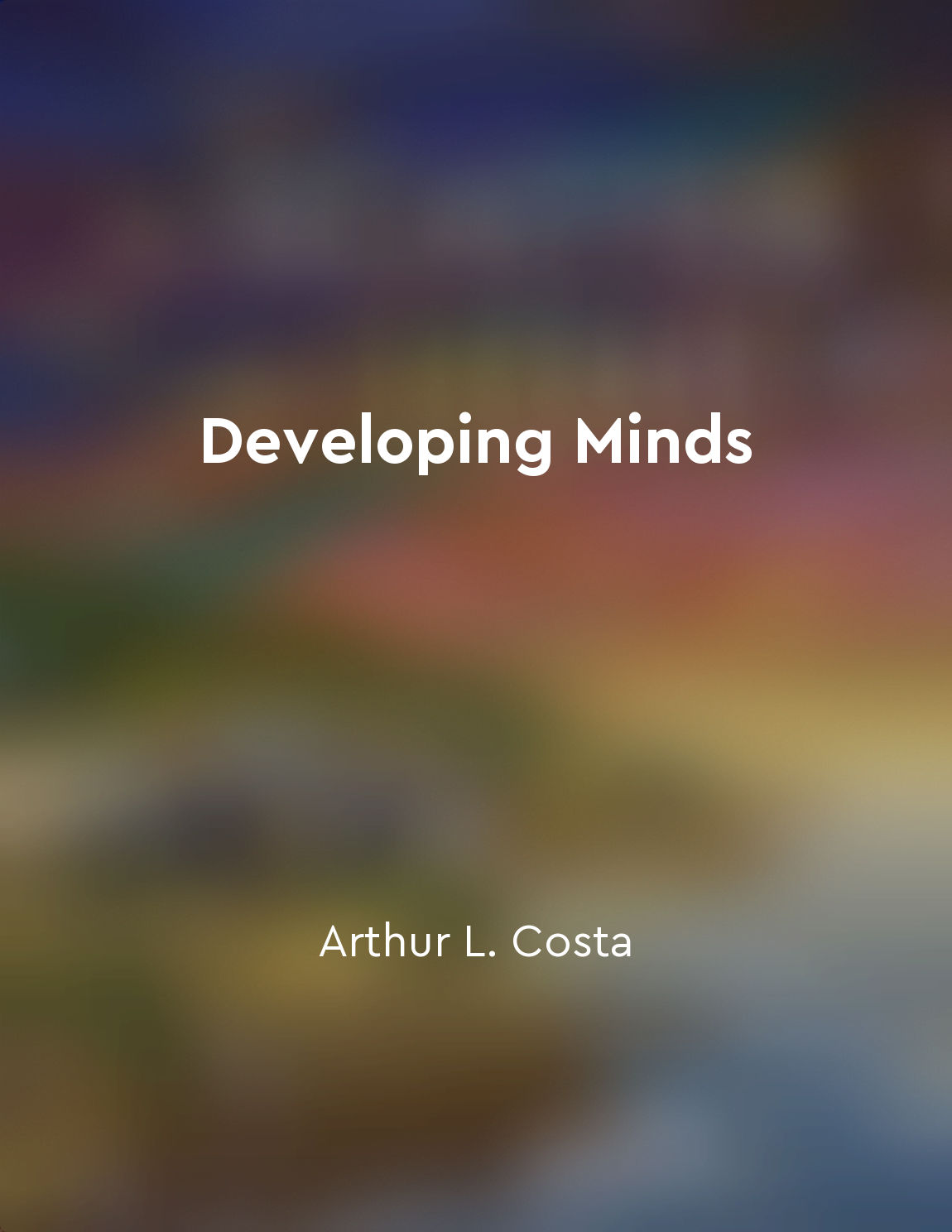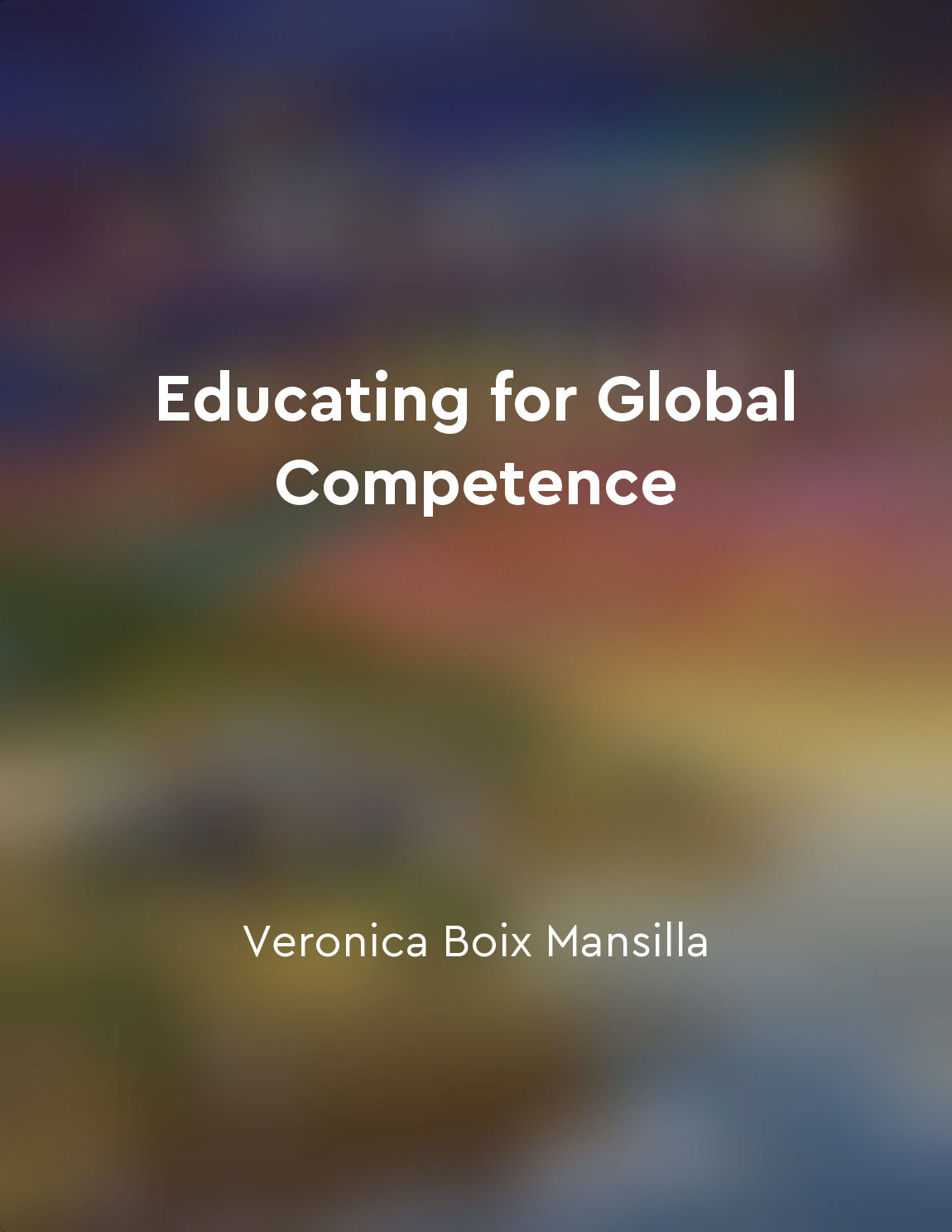Educators should promote students' cultural competence from "summary" of Educating for Global Competence by Veronica Boix Mansilla,Anthony Wells Jackson
Promoting students' cultural competence is a fundamental aspect of education in today's interconnected world. It involves equipping students with the knowledge, skills, and attitudes needed to navigate diverse cultural landscapes effectively. Cultural competence enables students to engage respectfully and empathetically with people from different backgrounds, fostering understanding and collaboration across cultural divides. Educators play a crucial role in fostering students' cultural competence by creating inclusive learning environments that celebrate diversity. By incorporating diverse perspectives into the curriculum and exposing students to a wide range of cultural experiences, educators can help students develop a deeper appreciation for the richness of human diversity. This, in turn, enhances students' ability to communicate effectively with individuals from different cultural backgrounds. Cultural competence also involves developing students' intercultural skills, such as the ability to adapt to new cultural contexts and communicate across cultural boundaries. Educators can help students develop these skills by providing opportunities for meaningful cross-cultural interactions, such as engaging in collaborative projects with peers from different cultural backgrounds or participating in cultural exchange programs. By encouraging students to step outside their comfort zones and engage with unfamiliar cultural practices, educators can help them develop the flexibility and open-mindedness needed to thrive in diverse global settings. Furthermore, promoting cultural competence requires educators to critically examine their own biases and assumptions about culture. By reflecting on their own cultural identities and biases, educators can model self-awareness and humility for their students, encouraging them to approach cultural differences with curiosity and respect. Educators can also challenge stereotypes and misconceptions about culture by fostering critical thinking skills and encouraging students to question cultural norms and practices. In summary, promoting students' cultural competence is essential for preparing them to thrive in an increasingly interconnected and diverse world. By creating inclusive learning environments, developing students' intercultural skills, and challenging stereotypes and biases, educators can empower students to navigate cultural differences with empathy and respect. Through these efforts, educators can help cultivate a new generation of global citizens who are equipped to contribute positively to a complex and interconnected world.Similar Posts
Collaboration promotes a positive learning environment
Collaboration among students is a key component in creating a positive learning environment. When students work together toward...
Study abroad programs and language acquisition
Study abroad programs have long been seen as an effective way for students to immerse themselves in a foreign language and cult...
It increases selfconfidence and self-esteem
The concept of increasing self-confidence and self-esteem is a crucial aspect of personal development and growth. When individu...
Building rapport with the audience enhances communication
When we speak in front of an audience, it is crucial to establish a connection with them. This connection, known as rapport, pl...
Knowledge influences critical thinking skills
In order to understand how knowledge influences critical thinking skills, it is important to recognize the fundamental connecti...
Effective communication skills are vital in the modern world
In today's fast-paced and interconnected world, the ability to communicate effectively is more important than ever. Whether it'...

Developing minds require continuous stimulation
The human brain, especially during the early years of development, is a remarkable organ that possesses an insatiable thirst fo...
Education should promote lifelong learning and growth
The essence of education lies in its ability to instill in individuals the desire and capability to continue learning throughou...
Practice reading body language daily
To become proficient at reading body language, it is important to make it a daily practice. This means paying attention to the ...

Educational opportunities
Educational opportunities play a crucial role in the process of globalization. The ability to access quality education is essen...

